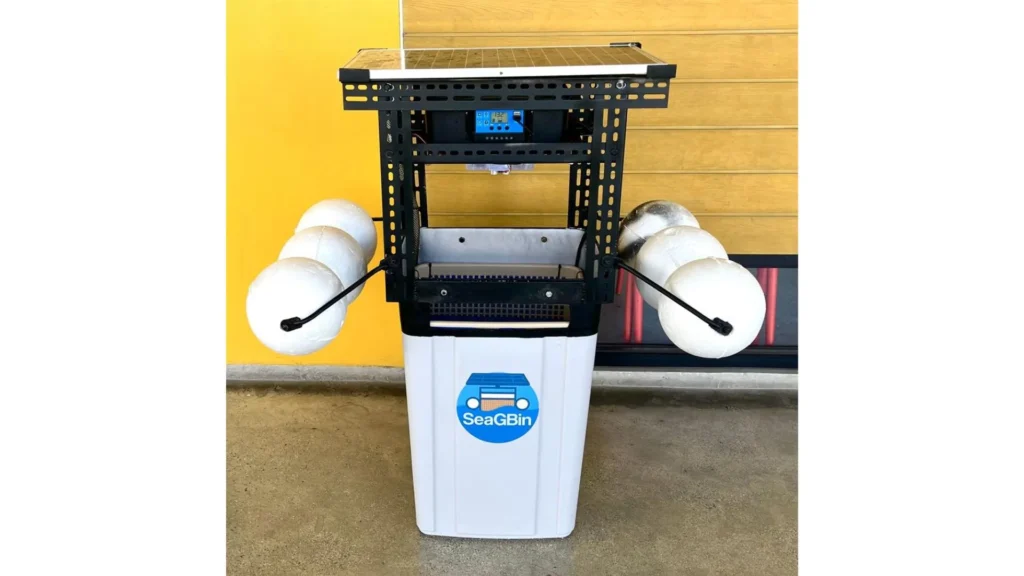In Cebu City in the Philippines, plastic waste has clogged rivers and canals due to the lack of adequate sanitation infrastructure. To address this problem, students at the Cebu Institute of Technology created SeaGBin, an automated floating garbage collector that utilizes solar energy and sends information to a mobile application for real-time monitoring.
An automated harvester in the service of sustainability
The device, partially submerged for effective absorption of floating debris, generates suction by means of a pump powered by a solar panel. solar panel panel and backed by a 12 V gel battery. Equipped with an ESP32 microcontroller, an ultrasonic sensor and a NEO-8M GPS module, the NEO-8M GPS moduleGPS module, it collects information on location, trash level, tide and weather. Everything is transmitted via wifi to an app that allows timely interventions and preventive maintenance.

Unlike other documented systems, such as those from Sharma and Li, SeaGBin is optimized for variable urban environments and can operate even in cloudy weather, thanks to its high-capacity battery. It also incorporates advanced filtration to avoid obstructions and can be scaled to form GPS-coordinated fleets.
Testing, adjustments and next steps
The student team conducted tests in controlled environments to ensure stability, energy efficiency and performance. Among their plans are improvements such as lithium-ion batteriesThe team’s plans include improvements such as lithium-ion batteries, waste sorting through artificial intelligence, and an application with expanded functions. Collaboration with NGOs and local governments is also planned for large-scale implementation.
SeaGBin reduces the entry of plastics into the sea, prevents blockages in drains and promotes digital monitoring of the water environment. Its design makes it a key tool for cities facing river pollution crises and looking for sustainable and automated cleanup options.
Follow us on social networks and don’t miss any of our publications!
YouTube LinkedIn Facebook Instagram X (Twitter) TikTok
Source and photo: James Dyson Award

